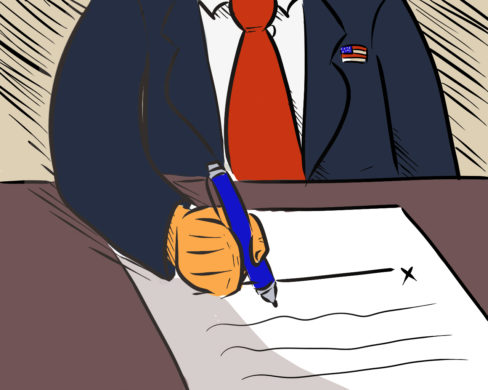
by Aminah Khan & Bethany Pham, Staff Writers
On Tuesday, U.S. Attorney General Jeff Sessions confirmed the White House’s decision to revoke the Obama-enacted program, Deferred Action for Childhood Arrivals (DACA), to the public.
In 2012, President Obama created DACA to allow children who were brought into the U.S. illegally to remain in the country. To qualify for the DACA program, they had to arrive in the United States before the year of 2007, or when they were younger than age of 16.
DACA was a program passed when the Obama administration compromised with Congress after the failure to pass the Development, Relief and Education for Alien Minors (DREAM) Act which would potentially allow children who came to the U.S. illegally to gain permanent legal residency. This bipartisan act was first proposed in 2001 and resurfaced in Congress several times but was never passed. Those protected under DACA are referred to as DREAMers and about 200,000 of the approximate 800,000 Dreamers currently reside in California alone.
Those applying for DACA must be students, are in school, or have served in the military. In addition, they are thoroughly vetted for any criminal records and any crimes committed can lead to immediate deportation. Once they pass the vetting process, their deportation is delayed for two years and they are eligible to receive a driver’s license, college enrollment, and a worker permit.
Sessions’ announcement had been long in the making—the majority of the Republican party has been advocating for stronger restrictions on immigration. More widely known were President Donald Trump’s campaign promises to end DACA on his first day of presidency. During the first three months of Trump’s first term alone, the Trump administration had detained two DACA recipients in February and March, raising suspicions that DACA recipients were being targeted and the government executing retribution on immigrants for speaking out.
The decision has simultaneously sparked outcry and rallied support across the nation over the repeal because if passed, it may lead to the deportation of nearly a million minors residing in the U.S. without citizenship.
As of now, the U.S. Citizenship and Immigration services have discontinued the acceptance of DACA applications. However, DREAMers whose permits expire before March 5, 2018 can apply for a two-year renewal, but their application must be completed before Oct. 5, 2017.
The Trump administration has rationalized their repeal of DACA on the grounds that the program had been furthering the issue of illegal immigration by providing unwarranted protection to transgressors. By solidifying the end of DACA, the White House believes it will save taxpayers’ dollars and jobs for native-born Americans.
The termination of the DACA program has an impact in American education, as high school and college students compose a majority of the DREAMers. Colleges and universities that have allowed undocumented immigrants to study have warned them to avoid traveling overseas, as deportation may be imminent. After graduation, DACA students’ education can no longer serve as a reason to reside in the U.S.





